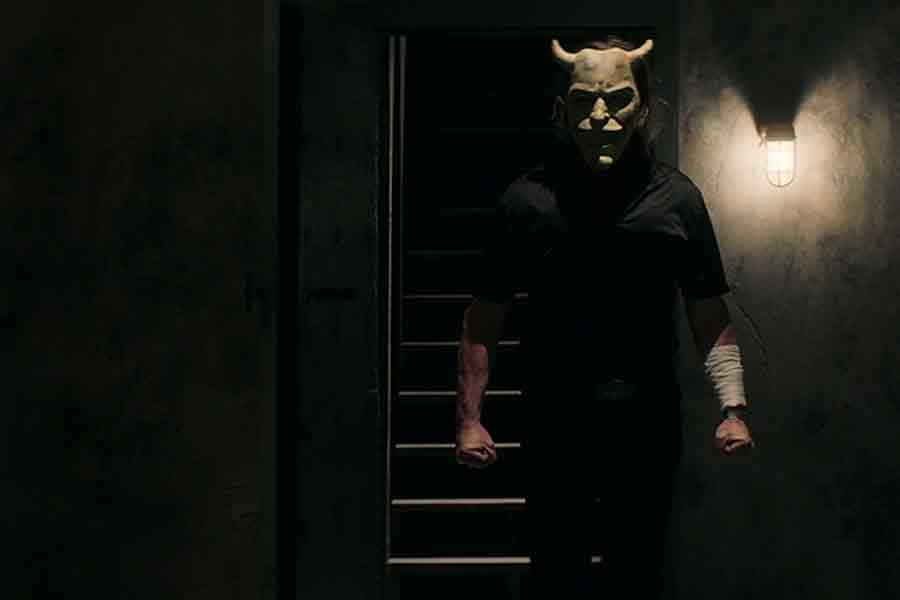
The Black Phone Is Another Blumhouse Failure
The latest from horror staple Blumhouse Productions and Sinister director Scott Derrickson proves you can harness all the typical horror elements and still end up with a pretty underwhelming film.
The film stars child actors Mason Thames and Madeleine McGraw as Finney and Gwen Blake who are both striving to save themselves and each other from an evil plaguing their small community. Ethan Hawke delivers a chilling performance as the grabber, the sadistic kidnapper responsible for the deaths of multiple boys in the area. McGraw and Thames also prove their careers to be promising with an incredible range and the ability to capture anger, fear, and resilience.
The film demonstrates every aspect of what’s expected in a horror film. These attributes fall disappointingly flat despite the film’s intriguing concept: Jumpscares, intense music, and the supernatural. After Finney is abducted by the grabber, he is trapped in a soundproof room where an ominous black phone hangs on the wall. He soon starts receiving calls from the grabber’s past victims advising him on ways to escape their tragic fate.
The trailer was accused of giving away too much detail regarding the plot and now that the film has been released, it’s safe to say that if watching the trailer didn’t Interest you enough this might be a skip because the film doesn’t offer anything else besides the face value horror tropes.
Looking past the strong performances and proper utilization of 70s horror (which is when the film takes place), viewers will find themselves wrestling with a tone-deaf and confusing message. Many horror films aim to formulate and portray a deeper meaning besides scary monsters and serial killers. The Black Phone’s theme is identifiable but problematically handled. We see early on that the film heavily centers around child abuse and violence against children.
In addition to boys being taken, we also witness excessive physical bullying, parental abuse and neglect, and the brutal murder and torture of children, although this is mostly described and not depicted. We also are following Finney’s arc as he transforms from shy to heroic, all with a couple of encouraging phone calls and, of course, being placed in a life or death environment.
Ironically, it’s Finney’s sister Gwen who steals the show with a much more engaging arc and a gift that’s crucial to saving her brother and solving the mystery of the whereabouts of the other victims. The cinematography is notable as some shots convey the severity of the situation our characters find themselves in.
The editing, however, completely discombobulates the viewer switching from perspectives and plot lines far too quickly, while other scenes seem to delay the progression of the story. Some characters feel purposeful and make up for the film’s clustered editing, but others feel shoehorned in and ultimately take up too much time on our screens and deviate from the development of our main characters.
The message is once again where the film stumbles the most as the gratuitous nature of violence against children backpedals any productive message about the danger of exposure to violence and the pervasiveness of generational trauma.
Perhaps the film would have benefitted from more efficient writers, but Derrickson’s direction certainly adds some flavor to an otherwise bland and tasteless experience.
The post The Black Phone: A New Horror Classic; Or Another Blumhouse Failure appeared first on Pop Culture Press, part of the Pop Culture Madness Network.